INSTITUTE FACULTY
Germany (University of Bremen, Max Planck Institute, Leibniz University Hannover, and DLR.) \ Netherlands (University of Amsterdam, and Radboud University.) \ Spain (University of Navarra, and Institute for Culture and Society.) \ Sweden (Örebro University, Umeå University, and University of Skövde.) \ United States (Stanford University, and Columbia University.)
Prof. John Bateman
University of Bremen, GERMANY /
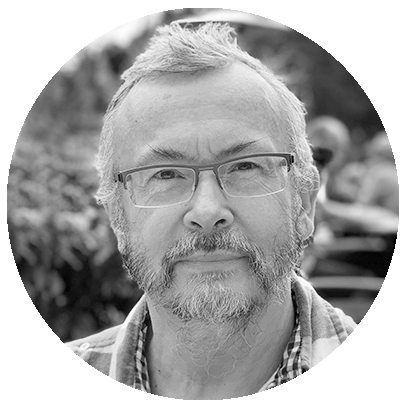 John Bateman (PhD in Artificial Intelligence, Edinburgh) has been professor of applied linguistics in the Faculty of Linguistics and Literary Sciences at the University of Bremen since 1999. His main fields of research range over functional linguistics, semiotics, computational linguistics (particularly natural language generation, discourse and dialogue), formal ontology, and the theory and practice of multimodality. He has published extensively in all these areas, with articles appearing in international journals ranging from the Artificial Intelligence Journal to the Journal of Terrorism and Political Violence. Recent books include monographs on multimodality and genre (2008, Palgrave), film (with Karl-Heinrich Schmidt, 2012), text and image (2014, Routledge), and an introductory textbook to the field of multimodality and its study as a whole (with Janina Wildfeuer and Tuomo Hiippala (2017), de Gruyter). His current research focuses on the further development and application of theories of multimodal communication and their empirical evaluation with respect to ever broader ranges of media, artefacts and performances.
John Bateman (PhD in Artificial Intelligence, Edinburgh) has been professor of applied linguistics in the Faculty of Linguistics and Literary Sciences at the University of Bremen since 1999. His main fields of research range over functional linguistics, semiotics, computational linguistics (particularly natural language generation, discourse and dialogue), formal ontology, and the theory and practice of multimodality. He has published extensively in all these areas, with articles appearing in international journals ranging from the Artificial Intelligence Journal to the Journal of Terrorism and Political Violence. Recent books include monographs on multimodality and genre (2008, Palgrave), film (with Karl-Heinrich Schmidt, 2012), text and image (2014, Routledge), and an introductory textbook to the field of multimodality and its study as a whole (with Janina Wildfeuer and Tuomo Hiippala (2017), de Gruyter). His current research focuses on the further development and application of theories of multimodal communication and their empirical evaluation with respect to ever broader ranges of media, artefacts and performances.
Prof. Mehul Bhatt
Örebro University, SWEDEN /
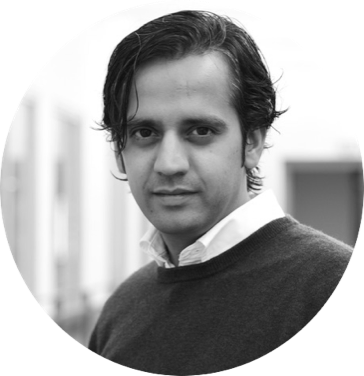 Mehul Bhatt is Professor within the School of Science and Technology at Orebro University (Sweden). His basic research
focusses on formal, cognitive, and computational foundations for AI technologies with a principal emphasis on knowledge representation,
semantics, integration of commonsense reasoning & learning, explainability, and spatial representation and reasoning. Mehul Bhatt steers
CoDesign Lab (www.codesign-lab.org), an initiative aimed at addressing the confluence of Cognition, Artificial Intelligence,
Interaction, and Design Science for the development of human-centred cognitive assistive technologies and interaction systems. Since 2014, he directs
the research and consulting group DesignSpace and pursues ongoing research
in Cognitive Vision
and Spatial Reasoning.
Mehul Bhatt is Professor within the School of Science and Technology at Orebro University (Sweden). His basic research
focusses on formal, cognitive, and computational foundations for AI technologies with a principal emphasis on knowledge representation,
semantics, integration of commonsense reasoning & learning, explainability, and spatial representation and reasoning. Mehul Bhatt steers
CoDesign Lab (www.codesign-lab.org), an initiative aimed at addressing the confluence of Cognition, Artificial Intelligence,
Interaction, and Design Science for the development of human-centred cognitive assistive technologies and interaction systems. Since 2014, he directs
the research and consulting group DesignSpace and pursues ongoing research
in Cognitive Vision
and Spatial Reasoning.
Mehul Bhatt obtained a Bachelors Economics (India), Masters in Information Technology (Australia), and a PhD in Computer Science (Australia). He has
been a recipient of an Alexander von Humboldt Fellowship, a German Academic Exchange Service award (DAAD),
and an Australian Post-graduate Award (APA). He was the University of Bremen nominee for the German Research Foundation (DFG) Award: Heinz Maier-Leibnitz-Preis 2014.
Prior to moving to Örebro University in Sweden, Mehul Bhatt was Professor at the University of Bremen in Germany. Research statement > Artificial and Human Intelligence - Formal and Cognitive Foundations.
Dr. Johanna Björklund
Umeå University,
SWEDEN /
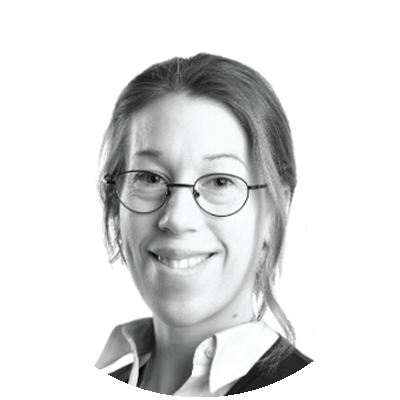 Johanna Björklund is an Associate Professor at the Department of Computing Science at Umeå University. Her research is on semantic, or human-like, analysis of multimodal data, incorporating, e.g., images, audio, video, and text. She is also a co-founder of the media tech companies Codemill, Adlede, and Accurate Player, which deliver products and services for the media supply chain and count ITV, BBC, and ProSieben among their customers.
Johanna received her PhD in Computer Science at Umeå University in 2007. The topic of her PhD thesis was the theory and application of tree languages. After her dissertation, she worked for a period of time at Dresden University as a research assistant at the chair of Prof. Vogler, before returning to Umeå and a position as first a junior and later a senior lecturer, becoming a Docent in 2016. Her work is supported by the Swedish Research Council, the Swedish Defence Research Institute, Vinnova, and various EC funding programs. She is the director of the Wallenberg Research Arena for Media and Language, which part of the research program Wallenberg AI, Autonomous Systems and Software Program (WASP).
Johanna Björklund is an Associate Professor at the Department of Computing Science at Umeå University. Her research is on semantic, or human-like, analysis of multimodal data, incorporating, e.g., images, audio, video, and text. She is also a co-founder of the media tech companies Codemill, Adlede, and Accurate Player, which deliver products and services for the media supply chain and count ITV, BBC, and ProSieben among their customers.
Johanna received her PhD in Computer Science at Umeå University in 2007. The topic of her PhD thesis was the theory and application of tree languages. After her dissertation, she worked for a period of time at Dresden University as a research assistant at the chair of Prof. Vogler, before returning to Umeå and a position as first a junior and later a senior lecturer, becoming a Docent in 2016. Her work is supported by the Swedish Research Council, the Swedish Defence Research Institute, Vinnova, and various EC funding programs. She is the director of the Wallenberg Research Arena for Media and Language, which part of the research program Wallenberg AI, Autonomous Systems and Software Program (WASP).
Prof. Ralph Ewerth
Leibniz Information Centre for Science and Technology, and University Library, Hannover, Germany /
 Ralph Ewerth is the Head of the Visual Analytics Research Group, at TIB – Leibniz Information Centre for Science and Technology and University Library. His main research areas includes visual analytics, information and multimedia retrieval, and search as learning:
semantic (automatic) annotation of visual data (images, video, 3D etc.), automatic understanding of multimodal information, digital library as a virtual place of learning and study, informal learning on the web with multimedia data, deep learning and adaptive machine learning methods, interactive exploration of media archives, usability aspects.
Ralph Ewerth studied computer science with a minor in psychology in Frankfurt am Main and Marburg. After completing his doctorate in Marburg (2008) on the subject of "Robust video content analysis via transductive learning methods", he headed the research area of multimedia computing at the Chair of Distributed Systems at the Philipps University of Marburg from 2008 to 2012.
From 2012 to 2015 he was a professor for digital image processing and media technology at the Ernst Abbe University in Jena, and since the beginning of 2015 he has also been Vice Dean of the Department of Electrical Engineering and Information Technology.
Ralph Ewerth is the Head of the Visual Analytics Research Group, at TIB – Leibniz Information Centre for Science and Technology and University Library. His main research areas includes visual analytics, information and multimedia retrieval, and search as learning:
semantic (automatic) annotation of visual data (images, video, 3D etc.), automatic understanding of multimodal information, digital library as a virtual place of learning and study, informal learning on the web with multimedia data, deep learning and adaptive machine learning methods, interactive exploration of media archives, usability aspects.
Ralph Ewerth studied computer science with a minor in psychology in Frankfurt am Main and Marburg. After completing his doctorate in Marburg (2008) on the subject of "Robust video content analysis via transductive learning methods", he headed the research area of multimedia computing at the Chair of Distributed Systems at the Philipps University of Marburg from 2008 to 2012.
From 2012 to 2015 he was a professor for digital image processing and media technology at the Ernst Abbe University in Jena, and since the beginning of 2015 he has also been Vice Dean of the Department of Electrical Engineering and Information Technology.
Prof. Charles Forceville
University of Amsterdam, NETHERLANDS /
 Charles Forceville is an Associate Professor in the Media Studies department of the Universiteit van Amsterdam. He serves as member of the advisory boards of Metaphor and Symbol , Journal of Pragmatics , Public Journal of Semiotics, Lodz Papers in Pragmatics, and the Benjamins series Review of Cognitive Linguistics and Cognitive
Linguistic Studies of Language and Cognition in Cultural Contexts. Forceville was programme director of the Research Master Media Studies from 2004-2012 and chairs the ACLC project AIM/Structure & Rhetoric in Multimodal
Discourse (see the "Adventures in Multimodality"/AIM blog at http://muldisc.wordpress.com/). From 2005-2008 he was external examiner of the MPhil Text and Visual Studies (TVS) at Trinity College, Dublin, Ireland.
Apart from publishing scholarly articles and book chapters, he wrote some 200 reviews of English-language fiction for the Dutch national newspaper Trouw (1987-2007). The volume Multimodal Metaphor (Mouton De Gruyter),
co-edited with Eduardo Urios-Aparisi, appeared in September 2009.
In 2008 he was given the opportunity, together with Kurt Feyaerts and Tony Veale, to spend six months as visiting fellow at VLAC (Vlaamse Academie/Royal Flemish Academy)
in Brussels, Belgium, to work on the project The Agile Mind: Creativity in Models and Multimodal Discourse. An edited volume on the topic appeared in 2013 with Mouton de Gruyter. 2017 saw the publication of Tseronis, Assimakis,
and Charles Forceville, eds (2017). Multimodal Argumentation and Rhetoric in Media Genres (Amsterdam: Benjamins).
Charles Forceville is an Associate Professor in the Media Studies department of the Universiteit van Amsterdam. He serves as member of the advisory boards of Metaphor and Symbol , Journal of Pragmatics , Public Journal of Semiotics, Lodz Papers in Pragmatics, and the Benjamins series Review of Cognitive Linguistics and Cognitive
Linguistic Studies of Language and Cognition in Cultural Contexts. Forceville was programme director of the Research Master Media Studies from 2004-2012 and chairs the ACLC project AIM/Structure & Rhetoric in Multimodal
Discourse (see the "Adventures in Multimodality"/AIM blog at http://muldisc.wordpress.com/). From 2005-2008 he was external examiner of the MPhil Text and Visual Studies (TVS) at Trinity College, Dublin, Ireland.
Apart from publishing scholarly articles and book chapters, he wrote some 200 reviews of English-language fiction for the Dutch national newspaper Trouw (1987-2007). The volume Multimodal Metaphor (Mouton De Gruyter),
co-edited with Eduardo Urios-Aparisi, appeared in September 2009.
In 2008 he was given the opportunity, together with Kurt Feyaerts and Tony Veale, to spend six months as visiting fellow at VLAC (Vlaamse Academie/Royal Flemish Academy)
in Brussels, Belgium, to work on the project The Agile Mind: Creativity in Models and Multimodal Discourse. An edited volume on the topic appeared in 2013 with Mouton de Gruyter. 2017 saw the publication of Tseronis, Assimakis,
and Charles Forceville, eds (2017). Multimodal Argumentation and Rhetoric in Media Genres (Amsterdam: Benjamins).
Dr. Paul Hemeren
University of Skövde, SWEDEN /
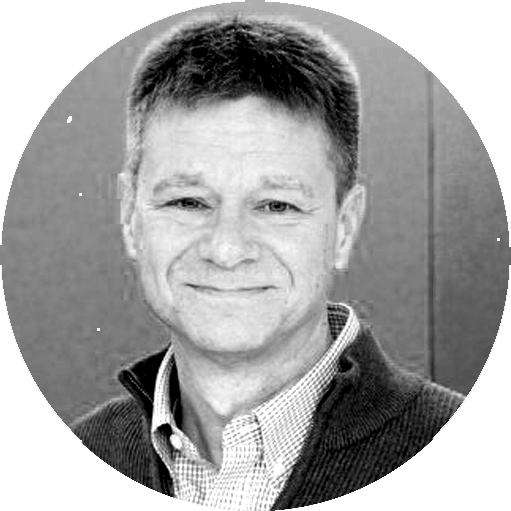 Paul Hemeren is an associate professor in informatics at the University of Skövde and was recruited as a cognitive scientist to the University of Skövde where the
subject area of informatics includes cognitive science for the development of computational models of intelligence and to improve the interaction between humans
and different kinds of technology. His Ph.D. in Cognitive Science is from Lund University. In his research, he looks at how we form concepts for things.
More specifically, he examines how we perceive other people's movements in the form of different actions. Humans and other creatures
have an amazing ability to quickly perceive what others are doing. How does this happen? What information is used to perceive another person's
intentions in an action or movement? One side of his research is about how we organize our knowledge of other people's and our own actions.
The other side is on how movement information in connection with the actions of others is processed in the human brain. An important aim of
his research is to integrate these two sides to gain a broader and deeper understanding of how we perceive our interaction with others. These
questions turn out to be important inputs for more applied projects about how we can create safer situations for cyclists and how we can achieve
a better interaction between humans and robots.
Paul Hemeren is an associate professor in informatics at the University of Skövde and was recruited as a cognitive scientist to the University of Skövde where the
subject area of informatics includes cognitive science for the development of computational models of intelligence and to improve the interaction between humans
and different kinds of technology. His Ph.D. in Cognitive Science is from Lund University. In his research, he looks at how we form concepts for things.
More specifically, he examines how we perceive other people's movements in the form of different actions. Humans and other creatures
have an amazing ability to quickly perceive what others are doing. How does this happen? What information is used to perceive another person's
intentions in an action or movement? One side of his research is about how we organize our knowledge of other people's and our own actions.
The other side is on how movement information in connection with the actions of others is processed in the human brain. An important aim of
his research is to integrate these two sides to gain a broader and deeper understanding of how we perceive our interaction with others. These
questions turn out to be important inputs for more applied projects about how we can create safer situations for cyclists and how we can achieve
a better interaction between humans and robots.
Dr. Inés Olza
University of Navarra, SPAIN /
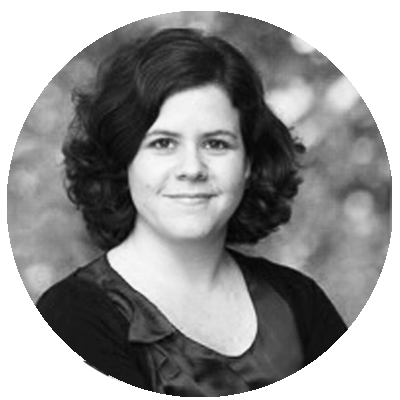 Inés Olza is a Tenured Researcher in Linguistics at the Institute for Culture and Society (ICS) of the University of Navarra (UNav), an interdisciplinary research center for the Humanities and Social Sciences. Within ICS, she is affiliated with the Emotional Culture and Identity Project (CEMID).
At UNav she leads the Multimodal Pragmatics Lab (MuPra Lab) and the Knowledge Generation Project MultiNeg on multimodal patterns for negation and disagreement, funded between 2019 and 2022 by the Spanish Ministry of Science (PGC2018-095703-B-I00). She is also a member of the Red Hen Lab, a distributed laboratory for research on multimodal communication.
Her research focuses on figurative language, gesture and phraseology from the perspective of Pragmatics, Cognitive Linguistics and Multimodality.
Inés Olza is a Tenured Researcher in Linguistics at the Institute for Culture and Society (ICS) of the University of Navarra (UNav), an interdisciplinary research center for the Humanities and Social Sciences. Within ICS, she is affiliated with the Emotional Culture and Identity Project (CEMID).
At UNav she leads the Multimodal Pragmatics Lab (MuPra Lab) and the Knowledge Generation Project MultiNeg on multimodal patterns for negation and disagreement, funded between 2019 and 2022 by the Spanish Ministry of Science (PGC2018-095703-B-I00). She is also a member of the Red Hen Lab, a distributed laboratory for research on multimodal communication.
Her research focuses on figurative language, gesture and phraseology from the perspective of Pragmatics, Cognitive Linguistics and Multimodality.
Prof. Asli Özyürek
Radboud University, NETHERLANDS /
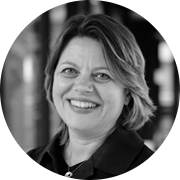 Asli Ozyurek is a full Professor at the Center For Language Studies (Faculty of Arts) and the Donders Institute for Brain, Cognition and Behavior (Faculty of Social Sciences) at
Radboud University and the Director of the Multimodal Language and Cognition lab. Asli Özyürek's research in general investigates the relations between cognition, language, communication and development.
She is interested in embodied and situated approaches to language and in particular to what extent our knowledge and use of bodily actions interact with language, its processing and learning.
Asli Özyürek investigates this question in two domains of human communicative behavior in which body and language are closely related:
A) gestures that speakers use along with speech
B) sign languages (established or emerging)
She has received NWO-VIDI grant (5-year), ASPASIA Award and ERC Starting Grant (5-year) and hosted three Marie-Curie Individual Postdoctoral Fellowships. She is also an elected (2019) member of Academia Europea. Currently Asli Özyürek is the PI of a 5-year NWO-VICI Grant for a research proposal entitled "Giving cognition a hand: Linking spatial cognition to linguistic expression in native and late learners of sign language and bimodal bilinguals" (until 2021).
Asli Ozyurek is a full Professor at the Center For Language Studies (Faculty of Arts) and the Donders Institute for Brain, Cognition and Behavior (Faculty of Social Sciences) at
Radboud University and the Director of the Multimodal Language and Cognition lab. Asli Özyürek's research in general investigates the relations between cognition, language, communication and development.
She is interested in embodied and situated approaches to language and in particular to what extent our knowledge and use of bodily actions interact with language, its processing and learning.
Asli Özyürek investigates this question in two domains of human communicative behavior in which body and language are closely related:
A) gestures that speakers use along with speech
B) sign languages (established or emerging)
She has received NWO-VIDI grant (5-year), ASPASIA Award and ERC Starting Grant (5-year) and hosted three Marie-Curie Individual Postdoctoral Fellowships. She is also an elected (2019) member of Academia Europea. Currently Asli Özyürek is the PI of a 5-year NWO-VICI Grant for a research proposal entitled "Giving cognition a hand: Linking spatial cognition to linguistic expression in native and late learners of sign language and bimodal bilinguals" (until 2021).
Dr. Jakob Suchan
German Aerospace Center (DLR), GERMANY /
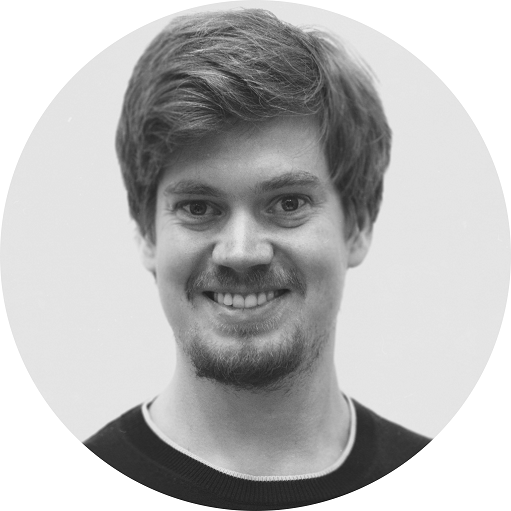 Jakob Suchan is a researcher based at the German Aerospace Center (DLR); previously, Jakob was based as doctoral researcher at the Human-Centred Cognitive
Assistance Lab at the Faculty of Mathematics and Informatics, University of Bremen, Germany. His research is in the area of (computational)
Cognitive Vision, particularly focussing on
the integration of Vision and AI (specifically, KR) from the viewpoint of computational cognitive systems where integrated
(embodied) perception and interaction are involved.
Jakob Suchan is a researcher based at the German Aerospace Center (DLR); previously, Jakob was based as doctoral researcher at the Human-Centred Cognitive
Assistance Lab at the Faculty of Mathematics and Informatics, University of Bremen, Germany. His research is in the area of (computational)
Cognitive Vision, particularly focussing on
the integration of Vision and AI (specifically, KR) from the viewpoint of computational cognitive systems where integrated
(embodied) perception and interaction are involved.
Prof. Barbara Tversky
Stanford University, and Columbia University, UNITED STATES /
 Barbara Tversky studied cognitive psychology at the University of Michigan, where she focused on the then neglected topic of spatial memory and imagery. The work continued and expanded at the Hebrew University in Jerusalem and Stanford University to include categorization, memory, cognitive maps, spatial mental models, spatial language and memory, eyewitness testimony, biased visual and verbal memory, HCI, design, diagrammatic thinking, gesture, event perception and cognition, and creativity. She is currently Professor of Psychology at Columbia Teachers College and Professor Emerita of Psychology at Stanford. She has received awards for teaching and for a computer laboratory for teaching cognitive psychology, is a fellow of the American Academy of Arts and Sciences, the American Psychological Society, the Cognitive Science Society, and the Russell Sage Foundation, and was elected to the Society of Experimental Psychology. She has served on the governing boards of many professional organizations, on the editorial boards of many journals, and on the organizing committees of nearly 100 international interdisciplinary conferences. She has enjoyed collaborations with linguists, philosophers, computer scientists, neuroscientists, biologists, chemists, engineers, architects, designers, and artists.
Barbara Tversky studied cognitive psychology at the University of Michigan, where she focused on the then neglected topic of spatial memory and imagery. The work continued and expanded at the Hebrew University in Jerusalem and Stanford University to include categorization, memory, cognitive maps, spatial mental models, spatial language and memory, eyewitness testimony, biased visual and verbal memory, HCI, design, diagrammatic thinking, gesture, event perception and cognition, and creativity. She is currently Professor of Psychology at Columbia Teachers College and Professor Emerita of Psychology at Stanford. She has received awards for teaching and for a computer laboratory for teaching cognitive psychology, is a fellow of the American Academy of Arts and Sciences, the American Psychological Society, the Cognitive Science Society, and the Russell Sage Foundation, and was elected to the Society of Experimental Psychology. She has served on the governing boards of many professional organizations, on the editorial boards of many journals, and on the organizing committees of nearly 100 international interdisciplinary conferences. She has enjoyed collaborations with linguists, philosophers, computer scientists, neuroscientists, biologists, chemists, engineers, architects, designers, and artists.